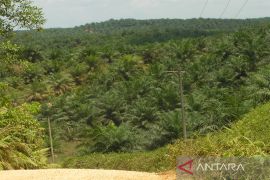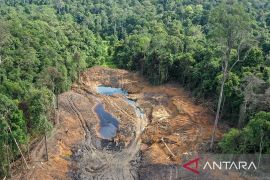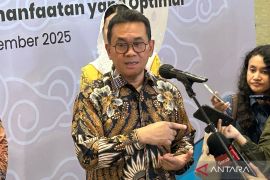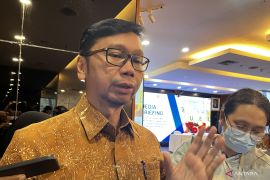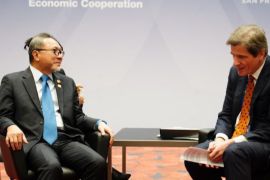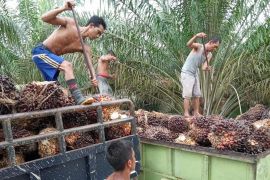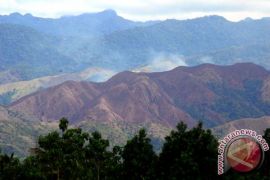The EUDR requires importers of commodities to show that the commodities did not originate from deforested land or contributed to deforestation.
"Since 2015, Astra Agro has used the NDPE policy," Astra Agro CEO Santosa said at the Talk to the CEO event here on Friday evening.
The commitment to the No Deforestation, No Peat, and No Exploitation (NDPE) policy prohibits planting on peatlands under any condition and encourages environmental sustainability.
Astra Agro adheres to this policy and does not carry out deforestation, which can damage the environment, Santosa emphasized.
However, he urged the government to help combat negative campaigns against Indonesian palm oil commodities by emphasizing the commitment of palm oil farmers to not clear new land through deforestation.
"So, the government or anyone else must help us fight negative campaigns," he said.
"The company can't do that. So, it must be (done by) the government, either through G-to-G (cooperation) or regionally with the European Union," he added.
Meanwhile, Fenny Sofyan from the communications division of the Indonesian Palm Oil Association (IPOA/GAPKI), in her report, stated that the Indonesian palm oil industry is facing a number of challenges, both domestically and abroad.
These challenges include allegations that the Indonesian palm oil industry is resorting to deforestation and that palm oil is a source of greenhouse gas emissions.
Even though the European Union is a producer of vegetable oil, it is also a traditional importer of palm oil with the import volume pegged at around 4–5 million tons per year.
Therefore, the ban on Indonesian palm oil exports to the European Union is being seen as an excuse to protect local vegetable oil producers as well as keep palm oil prices low.
Restrictions on palm oil trade to the European Union have been in place for a long time.
Therefore, GAPKI believes that the Indonesian government needs to continue its campaign in the European Union to raise awareness that since the presidential instruction regarding the moratorium on new permits for palm oil was implemented, deforestation has declined.
Meanwhile, the opening up of new land is only being carried out by individual farmers.
Related news: Indonesia-Norway start funding process from reduced deforestation
Related news: Suppressing deforestation benefits Indonesia: Moeldoko
Related news: Indonesia, US agree to cooperate in addressing deforestation
Reporter: Katriana
Editor: Azis Kurmala
Copyright © ANTARA 2024

